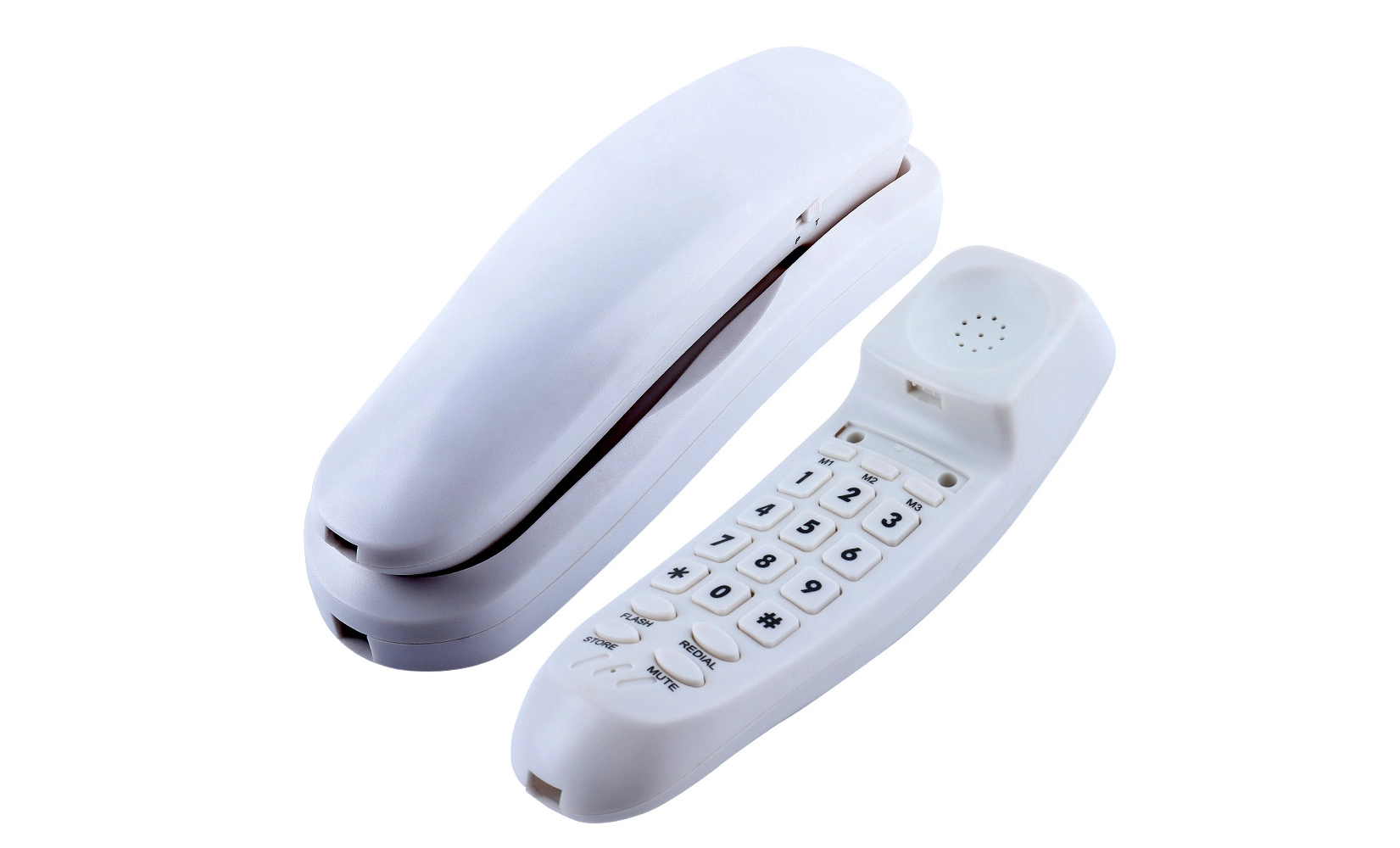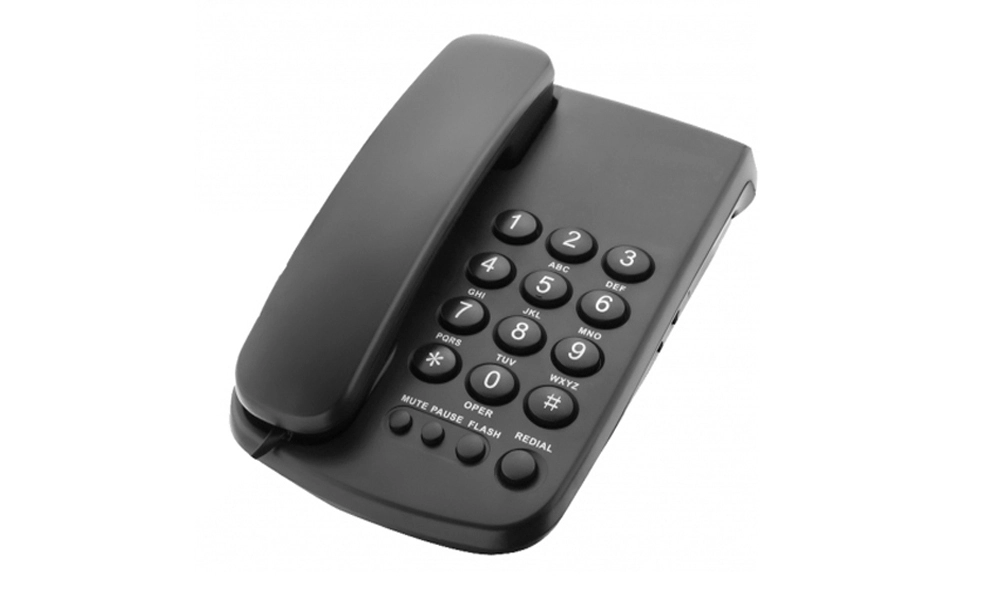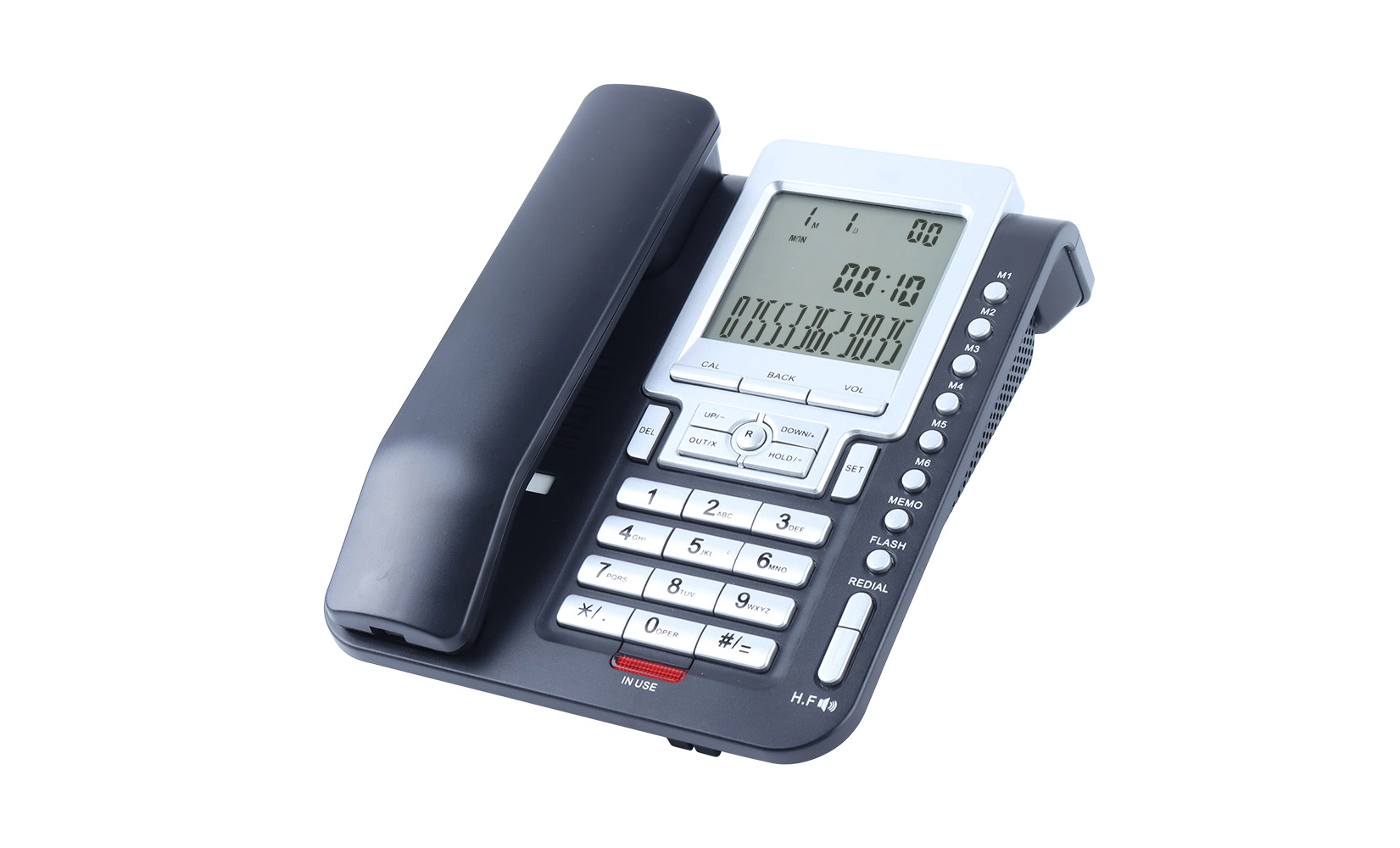Essential Features to Look for in a Basic Home Office Telephone
When searching for the perfect basic home office telephone, it's important to focus on key features that will enhance your work productivity. A high-quality basic telephone should offer clear sound reproduction, ensuring that your conversations are crisp and intelligible. Look for models with adjustable volume controls to accommodate different environments and personal preferences.
Another crucial feature is a large, easy-to-read display. This allows you to quickly identify incoming calls and access important information like call history and contact lists. Many modern basic telephones also include backlit displays, which are particularly useful in low-light conditions or for those with visual impairments.
Consider a telephone with a speakerphone function. This hands-free option is invaluable for multitasking during calls or hosting small conference calls from your home office. Ensure the speakerphone offers clear audio quality and sufficient volume for your workspace.
Advanced Functionality in Basic Models
While focusing on simplicity, many basic home office telephones now incorporate advanced features that can significantly improve your work efficiency. Look for models with caller ID functionality, which allows you to screen calls and prioritize your responses. Some basic phones also offer call waiting, enabling you to manage multiple calls without missing important communications.
Another useful feature to consider is a built-in answering machine. This can be particularly beneficial for home office workers who need to capture messages when they're away from their desk. Check for models that offer ample recording time and easy message retrieval.
Some basic telephones now include call blocking capabilities, allowing you to filter out unwanted calls and reduce interruptions during your workday. This feature can be especially valuable in maintaining focus and productivity in your home office environment.
Ergonomics and Design Considerations for Home Office Telephones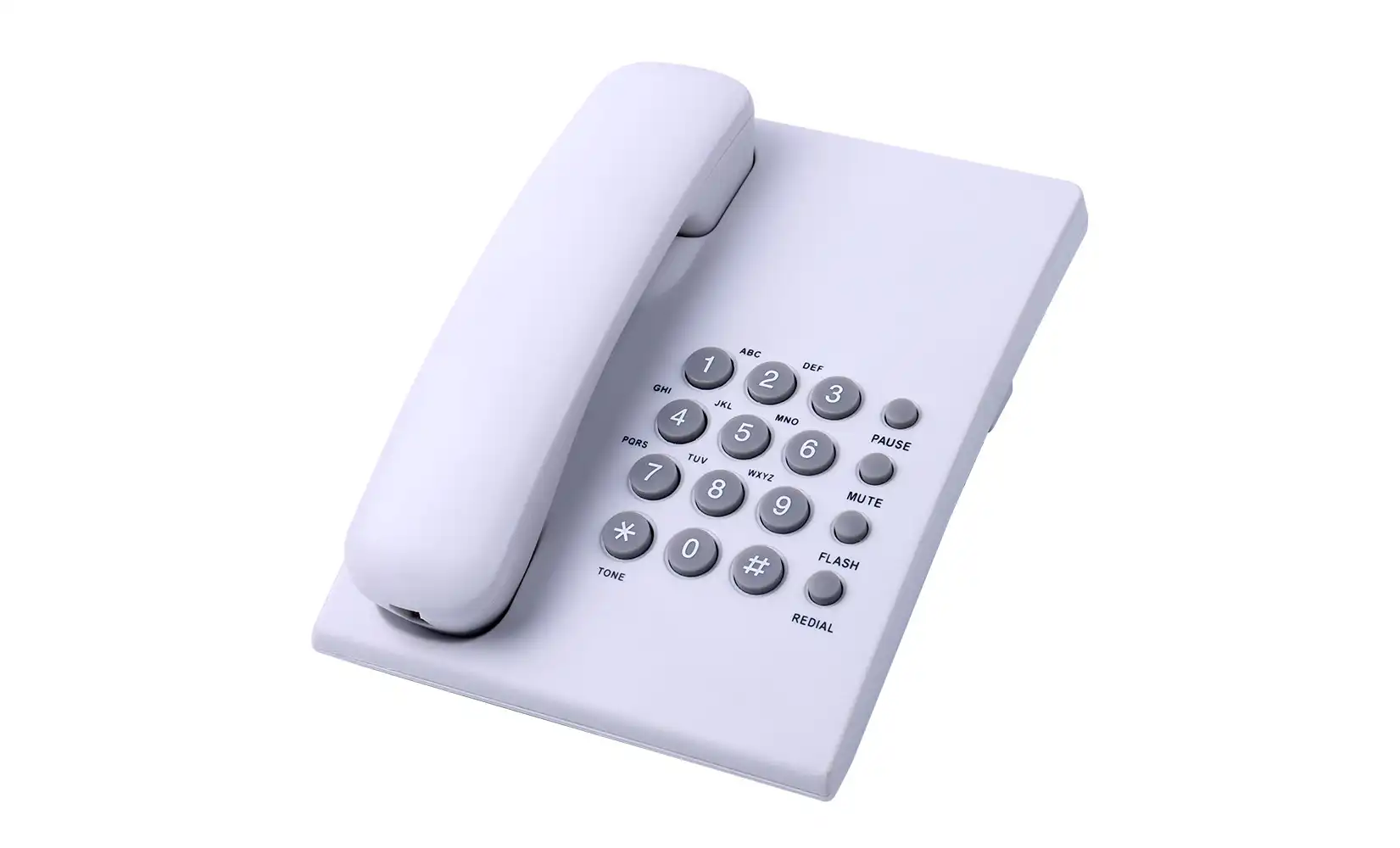
The ergonomics of your basic home office telephone play a crucial role in your comfort and efficiency. Look for a phone with a comfortable handset that fits naturally in your hand and against your ear. The keypad should be large and well-spaced, making it easy to dial numbers accurately, even during extended use.
Consider the overall design of the telephone and how it will fit into your home office space. A compact design can be beneficial if you have limited desk space, while a wall-mountable option might be preferable for some setups. Choose a color and style that complements your home office decor, as the telephone will likely be a visible part of your workspace.
Pay attention to the cord length of corded models. Ensure it provides sufficient reach for comfortable use within your workspace. For added flexibility, you might consider a cordless phone that allows you to move freely around your home office while on calls.
Durability and Build Quality
The durability of your basic home office telephone is paramount, especially if you anticipate heavy daily use. Look for models constructed with high-quality materials that can withstand frequent handling and potential accidents. Phones with rubberized grips or reinforced casings can offer extra protection against drops and impacts.
Check for telephones that have undergone rigorous testing for reliability and longevity. Many reputable manufacturers subject their products to stress tests to ensure they can withstand the demands of a busy home office environment. Reading customer reviews can also provide insights into the long-term durability of different telephone models.
Consider the warranty and after-sales support offered by the manufacturer. A good warranty can provide peace of mind and protection against potential defects or malfunctions. Excellent customer support can be invaluable if you encounter any issues or need assistance with your telephone.
 Connectivity and Compatibility in the Modern Home Office
Connectivity and Compatibility in the Modern Home Office
In today's interconnected world, it's crucial to ensure your basic home office telephone is compatible with your existing communication setup. If you're using a VoIP (Voice over Internet Protocol) service, verify that the telephone you're considering is compatible with this technology. Some basic phones now offer both traditional landline and VoIP compatibility, providing flexibility for various home office setups.
For those who frequently use headsets, look for a telephone with a dedicated headset jack. This feature allows for comfortable, hands-free operation during long calls or when multitasking. Ensure the phone is compatible with standard headset models to avoid any connectivity issues.
Consider how the telephone integrates with other devices in your home office. Some advanced basic models offer Bluetooth connectivity, allowing you to connect your mobile phone and use the home office telephone as a base station. This can be particularly useful for managing both personal and professional calls from a single device.
Future-Proofing Your Home Office Communication
While focusing on basic functionality, it's wise to consider how your telephone choice might adapt to future needs. Look for models that offer firmware update capabilities, which can potentially add new features or improve performance over time. This future-proofing can extend the useful life of your telephone and ensure it remains compatible with evolving communication technologies.
Consider the expandability of your telephone system. If there's a possibility you might need to add extensions or integrate with a larger phone system in the future, choose a basic model that offers these expansion options. This foresight can save you from having to replace your entire telephone setup as your home office needs grow.
Lastly, think about energy efficiency. Opt for telephones that are energy-star certified or have low power consumption. This not only reduces your environmental impact but can also lead to long-term cost savings on your energy bills.
Conclusion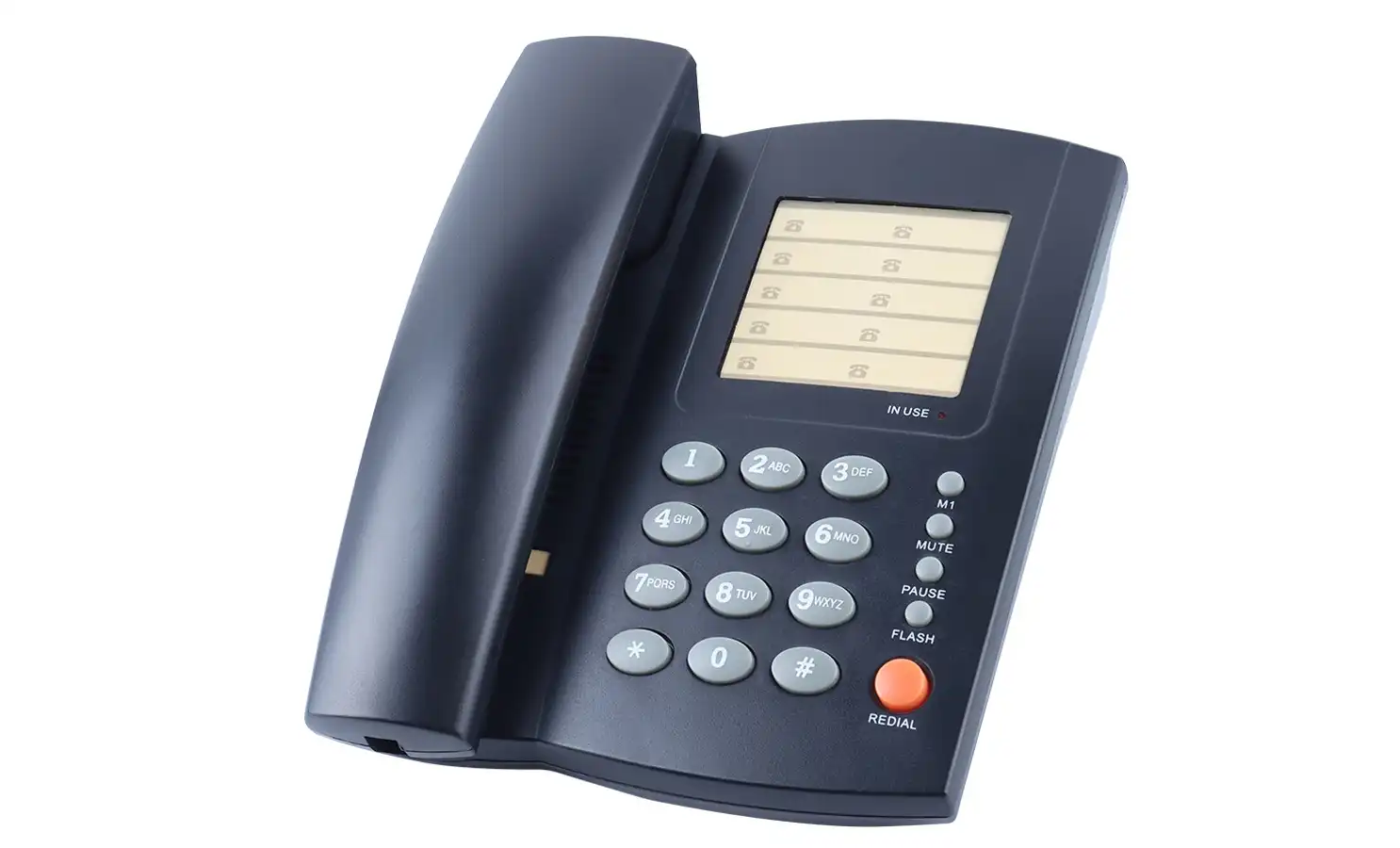
Choosing the right basic telephone for your home office is a decision that can significantly impact your daily work life. By focusing on essential features, ergonomics, durability, and connectivity, you can select a telephone that meets your current needs while also accommodating future requirements. Remember to prioritize call quality and reliability above all else, as these factors are fundamental to effective communication in any home office setting.
A well-chosen basic home office telephone should seamlessly integrate into your workflow, enhancing productivity without adding unnecessary complexity. Whether you opt for a simple corded model or a more advanced cordless system, ensure it aligns with your specific work habits and office setup. With the right telephone at your fingertips, you'll be well-equipped to handle your professional communication needs efficiently and effectively from the comfort of your home office.
FAQ
What are the most important features to look for in a basic home office telephone?
Key features include clear sound quality, caller ID, speakerphone functionality, and an easy-to-read display. Consider also durability, ergonomic design, and compatibility with your existing setup.
Are cordless phones better than corded ones for a home office?
It depends on your needs. Cordless phones offer mobility, while corded phones are more reliable and don't require charging. Consider your workspace and work style when choosing.
How important is VoIP compatibility in a basic home office phone?
VoIP compatibility is increasingly important, especially if you use internet-based phone services. It provides flexibility and can be cost-effective for long-distance calls.
Choose CHEETA for Your Basic Home Office Telephone Needs | CHEETA
At CHEETA, we understand the importance of reliable communication in your home office. With 18+ years of experience in OEM/ODM services, our Shenzhen-based factory produces high-quality basic telephones that meet CE and ROHS standards. Our rigorous 11-step inspection process ensures a failure rate below 1%, guaranteeing long-term reliability for your home office needs. Choose CHEETA for customizable, durable, and efficient basic home office telephones. Contact us at allen@cheeta.com.cn to explore how our expertise can enhance your home office communication setup.

References
1. Smith, J. (2023). "The Evolution of Home Office Communication Technology". Telecommunications Review, 45(2), 78-92.
2. Brown, A. & Johnson, L. (2022). "Ergonomics in Home Office Design: A Comprehensive Study". Journal of Workplace Efficiency, 33(4), 201-215.
3. Telecom Industry Association. (2023). "Annual Report on Home Office Communication Trends". TIA Publications.
4. Chang, M. (2021). "The Impact of VoIP Technology on Home Office Telephony". International Journal of Business Communication, 58(3), 312-328.
5. Green Office Initiative. (2023). "Energy Efficiency in Home Office Equipment: A Guide for Consumers". GOI Press.
 Selecting the ideal
Selecting the ideal 

